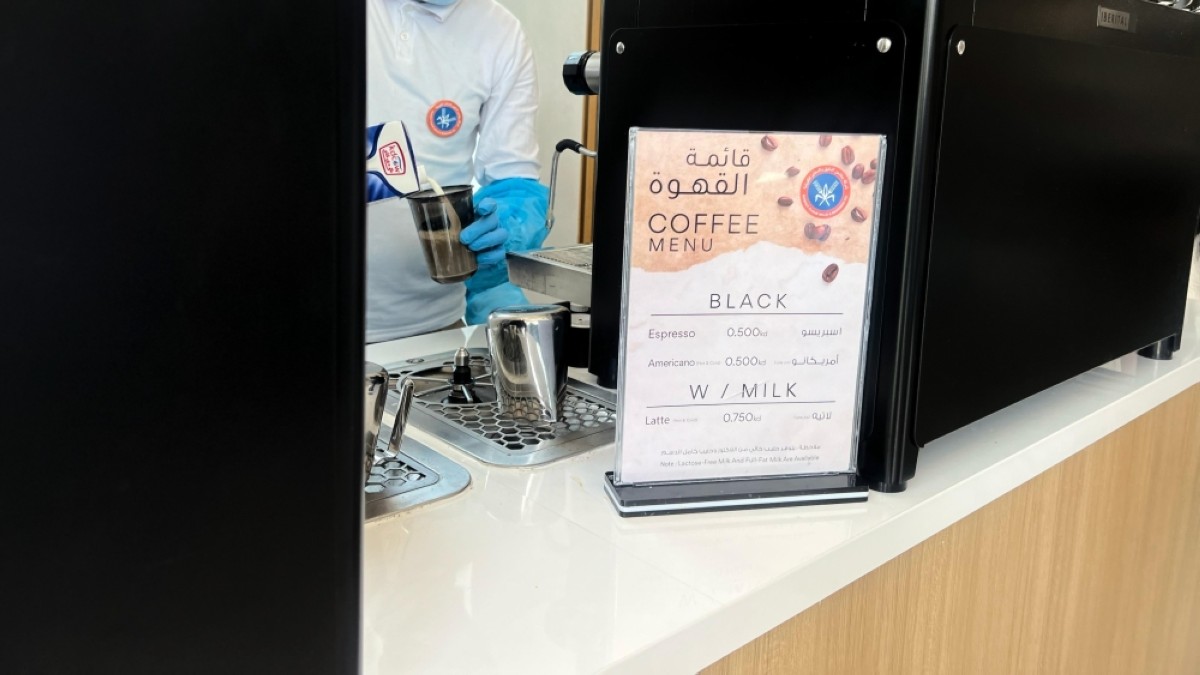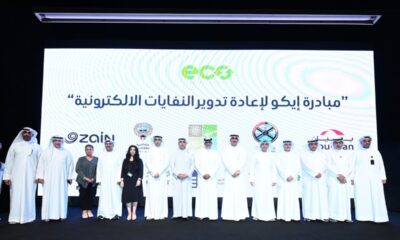KUWAIT: A few weeks after Kuwait Flour Mills and Bakeries Company (KFMBC) began serving coffee at select branches — priced between just 500 to 750 fils — the initiative has sparked a wave of public debate and drawn attention to Kuwait’s competitive coffee market. The stark contrast in prices has led many to question how KFMBC is able to offer quality coffee at such low rates, especially when most local cafés charge nearly double, or more. “Other cafés sell same drinks for KD 2 or more, and this is only 750 fils.
The quality and price are amazing, and it’s a national product. Why not support it?” said a 46-year-old Kuwaiti professor at Kuwait University. Another consumer in her mid-30s shared a similar sentiment, expressing frustration over the rising cost of coffee in other shops. “When you look at other brands, the actual cost of producing coffee is not that high, but they still charge us so much. That’s why I appreciate what Kuwait Flour Mills is doing,” she said.
The cost behind your cup
From the perspective of coffee shop operators, Abdulaziz Almousa, a marketing expert and marketing manager of a local specialty café, acknowledged that pricing is often inflated. “It’s true that some coffee shop owners exaggerate in the pricing,” he said. “However, while some products may be overpriced, no one is obligated to make that purchase. Similarly, coffee shop owners are free to set prices according to the value they believe their experience or product delivers.” He pointed out that the final price of a cup of coffee involves more than just the cost of ingredients. “Customers might miss the full picture,” he explained. “Packaging, rent, prime location, branding, marketing, operational costs — all of these play a role.” He added that in Kuwait, rent often takes up the largest share of expenses.
Kuwait flour mills Al-Yarmouk branch
Almousa also commented on why many café owners feel disappointed by KFMBC’s move. “Kuwait Flour Mills holds a special place in our hearts, especially as a government-backed company,” he said. “That’s why business owners expected them to support local cafés, not compete with them. Instead of selling coffee in their own stores, they could have purchased it in bulk and offered it to small businesses at subsidized rates, still turning a profit while helping the local market.”
However, he does not believe KFMBC poses a major threat to the café market. “Most coffee shops today, especially specialty ones, are not just selling a drink; they’re selling an experience,” he said. “For their audience, the ambiance and the service often outweigh the importance of the coffee’s origin or quality.” This was echoed by a self-described coffee aficionado, who said, “It’s about the full experience for me. If a place has a reasonably priced, well-thought-out food menu with good quality ingredients, sandwiches or savory items are a must, and a nice quiet ambience, I’m more likely to go there even if it wasn’t the cheapest option out there.”
Long lines and limited options
One female customer spotted at the KFMBC Yarmouk branch said it was her first time visiting after hearing about the buzz. “I honestly don’t think other coffee shops should worry. Not everyone is going to come all the way to one of the few Kuwait Flour Mills branches,” she said. “Personally, I wouldn’t choose it over my favorite coffee brand — maybe only sometimes, like on a relaxed weekend when I have time.” From a market standpoint, Almousa noted that if specialty cafés were truly at risk, the real threat would’ve already come from larger international brands offering affordable coffee. He emphasized that different customers seek different experiences.
For Dhoha, a Kuwaiti working professional, her coffee habits revolve around speed and convenience. “I stick to one brand near my office because it’s fast, familiar, and delivers within ten minutes,” she said. When asked if she’d consider switching to KFMBC coffee if it matched her preferred quality, she replied, “Yes — if it’s cheaper and nearby. But I don’t think they deliver, and for me, that’s a deal breaker. I’m not the type to plan my day around coffee pickups or wait in line.”
Tamer Seleem, 42, a teacher at a school near the Yarmouk branch, has become a regular KFMBC coffee buyer. “I waited 30 minutes today, which is an improvement from before,” he said. He praised the coffee but pointed out some challenges. “There are only two staff handling the orders. I had to wait in three separate lines: One for the croissant, one for the cashier, one for coffee. It needs to be streamlined,” he said.
“I still think hard before coming because of the long lines.” He also believes it has very limited options. “They definitely need to include more varieties, as there are only three drinks — espresso, Americano and latte,” he said. Looking ahead, Almousa believes KFMBC is likely to succeed in the long run, though the hype and long queues may eventually fade. “I expect local coffee shops to adapt by offering more variety at different price points, introducing more affordable options,” he said.


















